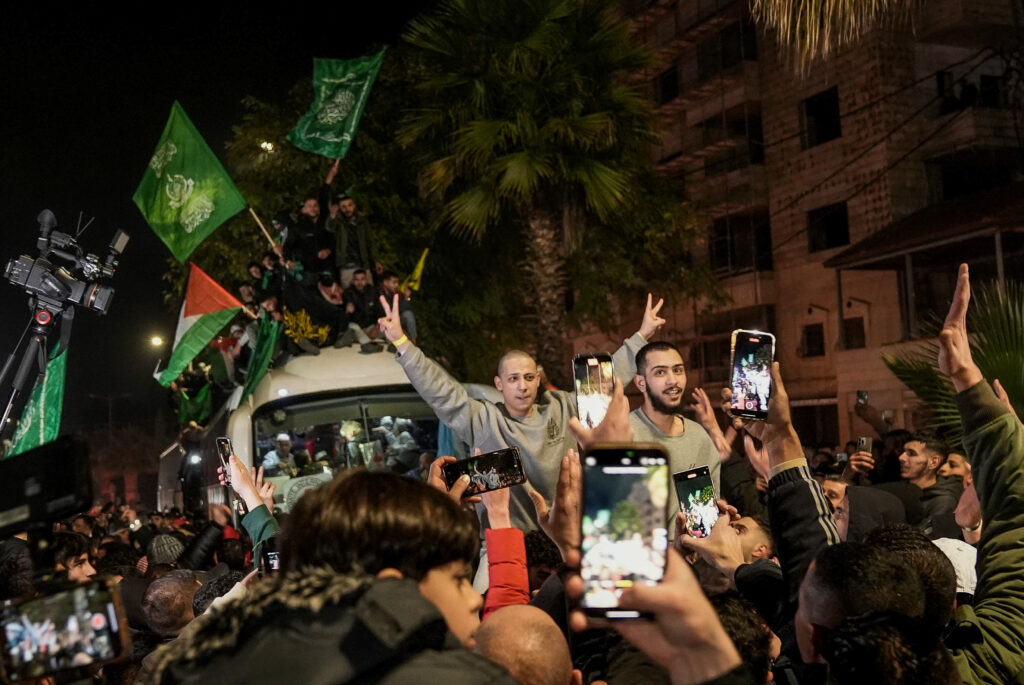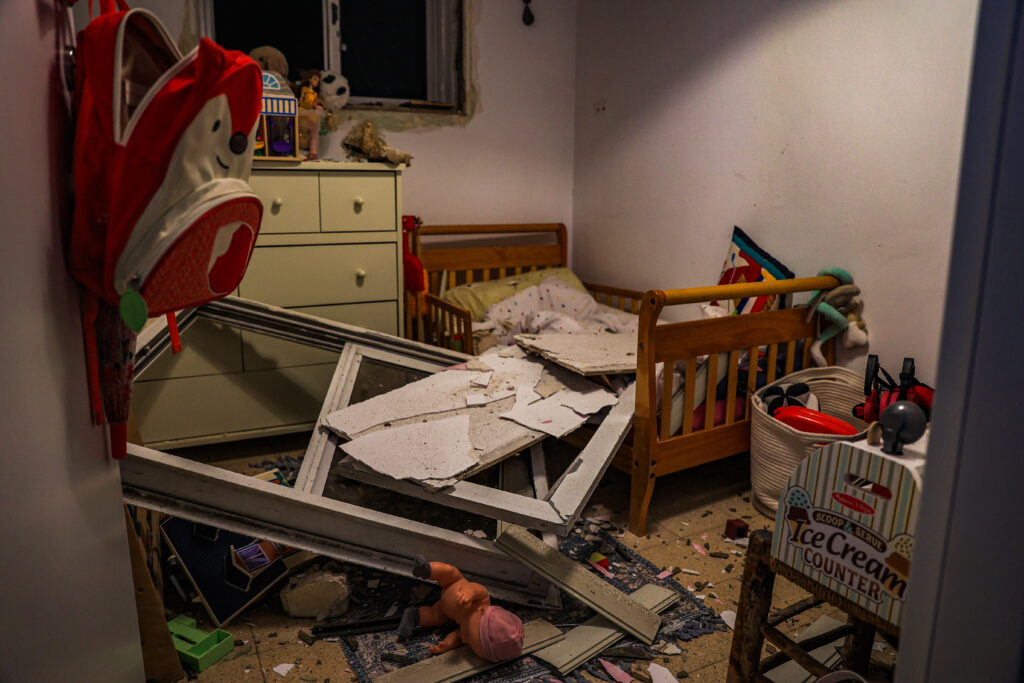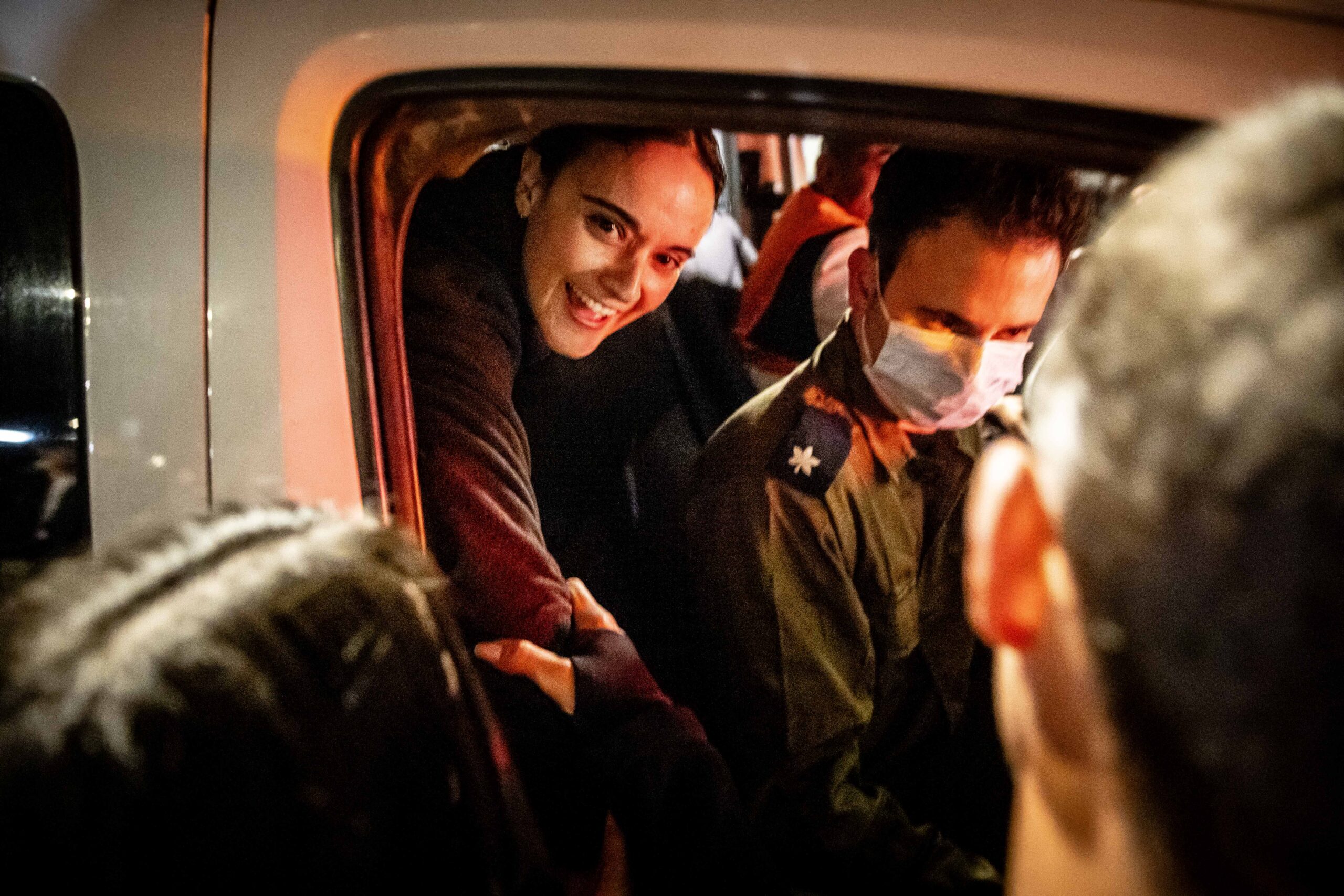Freed Hostages Back With Families
On the evening of January 19, 2025, a deeply emotional reunion took place at Sheba Tel Hashomer Medical Center in Ramat Gan, where Emily Damari, Doron Steinbrecher, and Romi Gonen, who had been held hostage by Hamas for 471 days, were finally embraced by their families. The release of these three women marks the beginning of a series of releases, under a ceasefire agreement with Hamas that commenced earlier that day. The hostages were transferred to the care of the Israel Defense Forces by the International Committee of the Red Cross within Gaza.
Beautiful moments as Israeli hostages Emily Damari, Romi Gonen, and Doron Steinbrecher finally reunited with their mothers.
— Dr. Maalouf (@realMaalouf) January 19, 2025
There is no comparison.
One side cherishes life. The other celebrates death. pic.twitter.com/dtXhsTJ76b
Upon their arrival, a Hamas video was circulated showing the women receiving bags containing keepsakes from their captivity. Following their physical check-up near the Gaza border, they were airlifted to the hospital. Dr. Yael Frenkel Nir, the hospital’s director, confirmed their stable physical condition which allowed them to spend precious moments with their families immediately upon arrival.
Outside the hospital, crowds gathered to celebrate the return of the hostages. Mandy Damari, Emily’s mother, expressed profound gratitude to those who advocated for her daughter’s release and highlighted the ongoing plight of others still held captive. Meanwhile, Doron Steinbrecher’s relatives acknowledged the support from the Israeli community and international figures, including President Trump. Romi Gonen, in a heartfelt audio message to her hometown of Kfar Vradim, expressed her deep appreciation for their support during her ordeal.
Palestinians Celebrate Prisoner Release
Late on the night of January 20, 2025, jubilant crowds in Beitunia, Judea and Samaria, welcomed the release of 90 individuals previously incarcerated, as reported by AFP. This event was part of the initial phase of a ceasefire deal with Hamas. That same day, three Israeli women were freed from 472 days of captivity in Gaza, facilitated by the Israel Defense Forces.
As the released individuals departed from Ofer prison and the Jerusalem detention center, celebrations included the raising of Palestinian and faction flags by the crowd. However, the mood was not universally festive; Yossi Dagan, head of the Samaria Regional Council, voiced serious concerns about the implications of the prisoner release, labeling it a significant security risk to the entire region, particularly the communities directly surrounding Judea and Samaria.

Israel’s Supreme Court, despite a petition from terror victims’ families, chose not to intervene in the release, citing the narrow scope of judicial review in such cases, emphasizing the complexity of these security and humanitarian issues.
Houthi Threats Persist Amid Ceasefire Developments
As of January 20, 2025, the Houthi militia in Yemen, backed by Iran, has declared a conditional cessation of its maritime attacks in the Red Sea, specifically targeting vessels linked to Israel, as per a report by the Associated Press. This decision is tied to the progressive fulfillment of a ceasefire agreement between Israel and Hamas, signaling a potential shift in regional maritime security dynamics.

The Houthis, who had previously committed to attacking Israeli-affiliated ships since November 2023, will continue these actions until the full implementation of the ceasefire. The group’s military spokesperson, Yahya Sarea, emphasized the readiness to reinstate these actions if provoked. In 2023, the group’s aggressive stance resulted in numerous attacks on over a hundred merchant vessels using missiles and drones, prompting increased Israeli naval defenses in the region.





